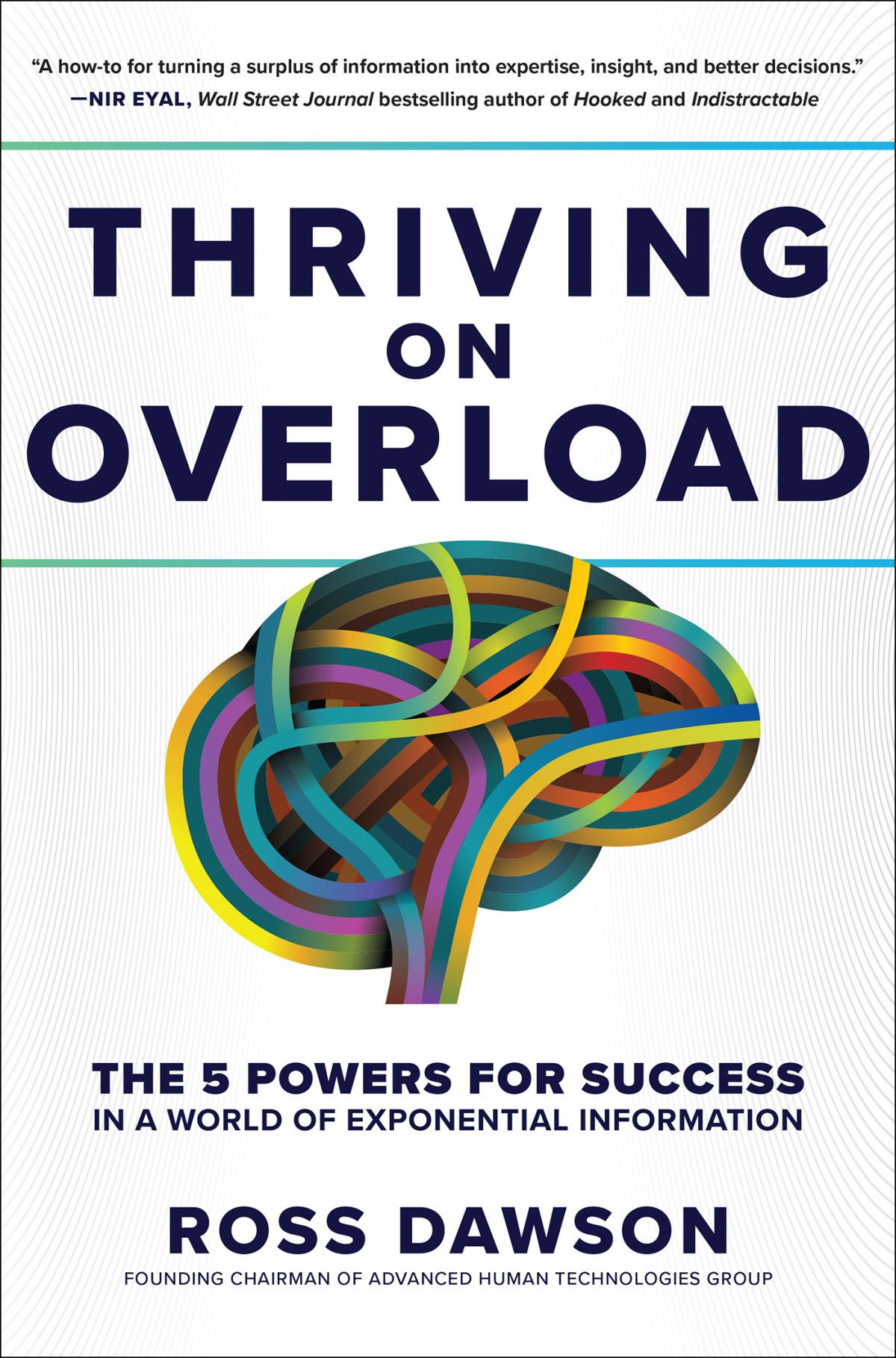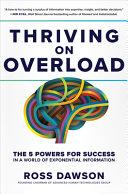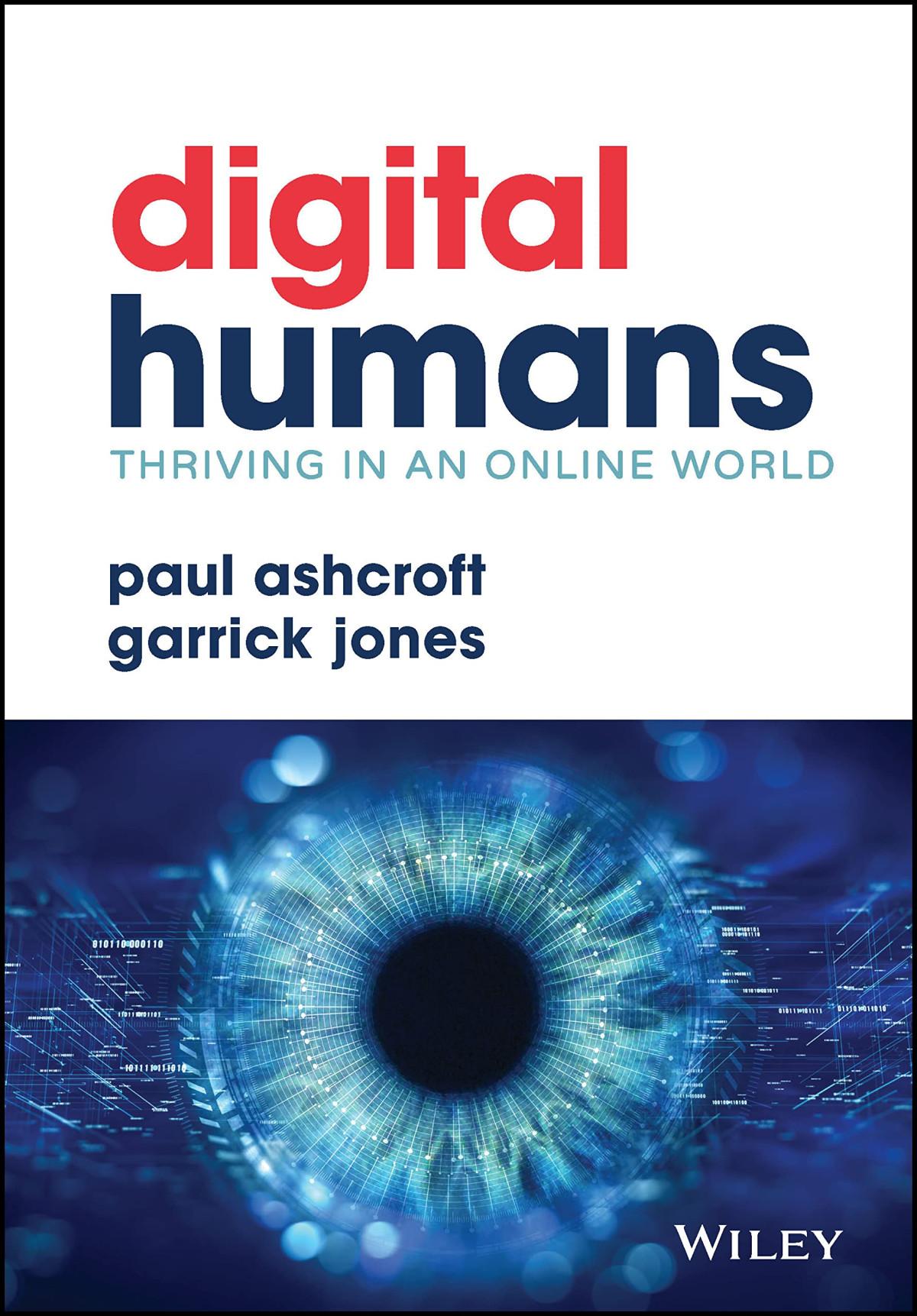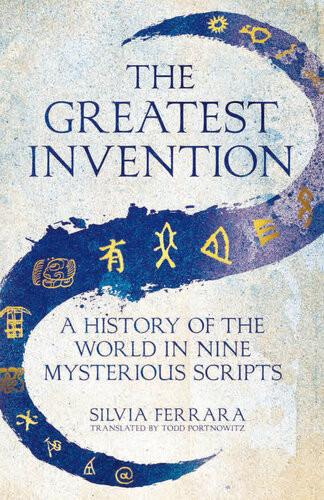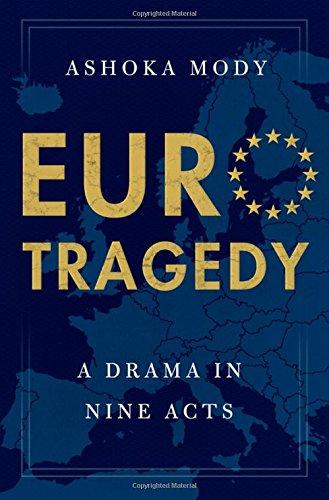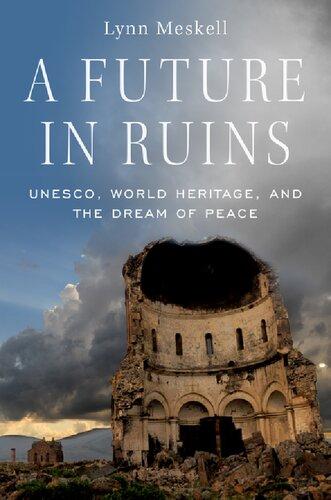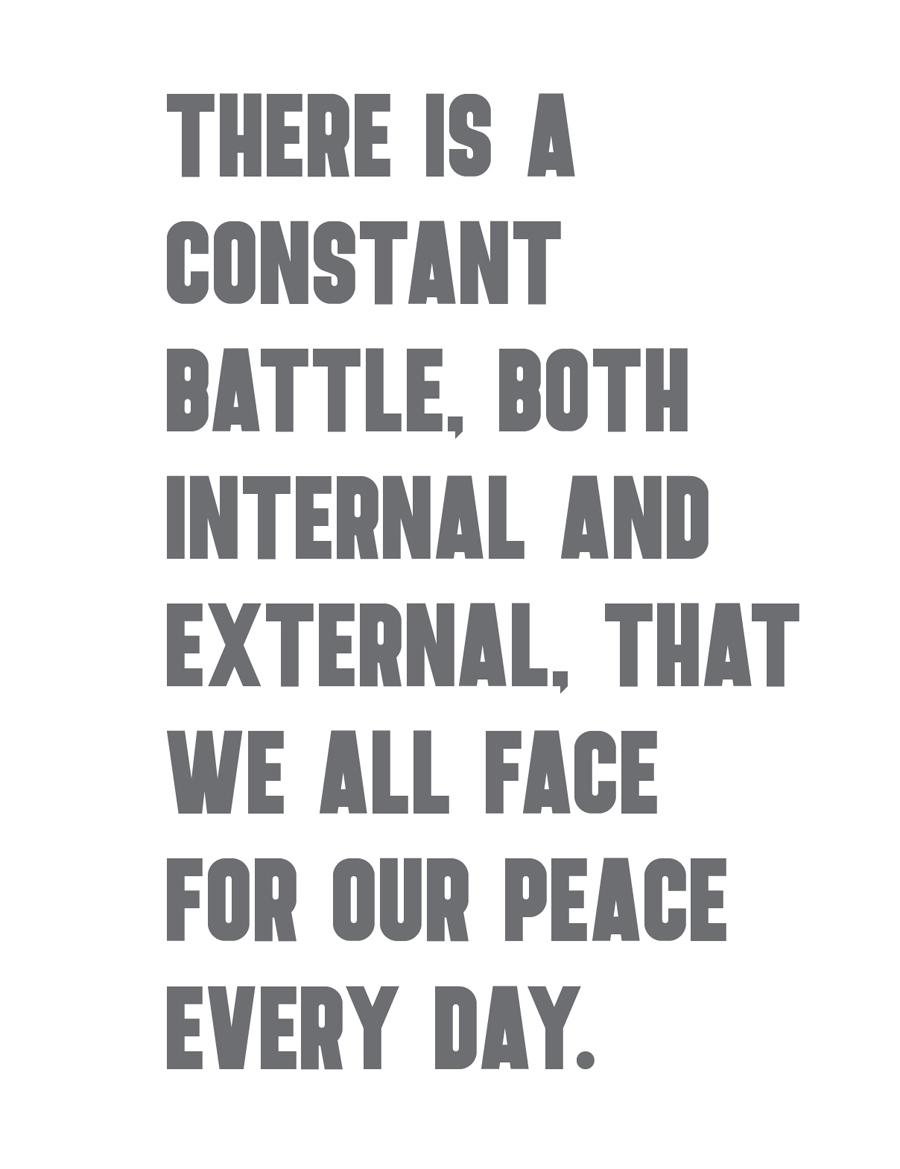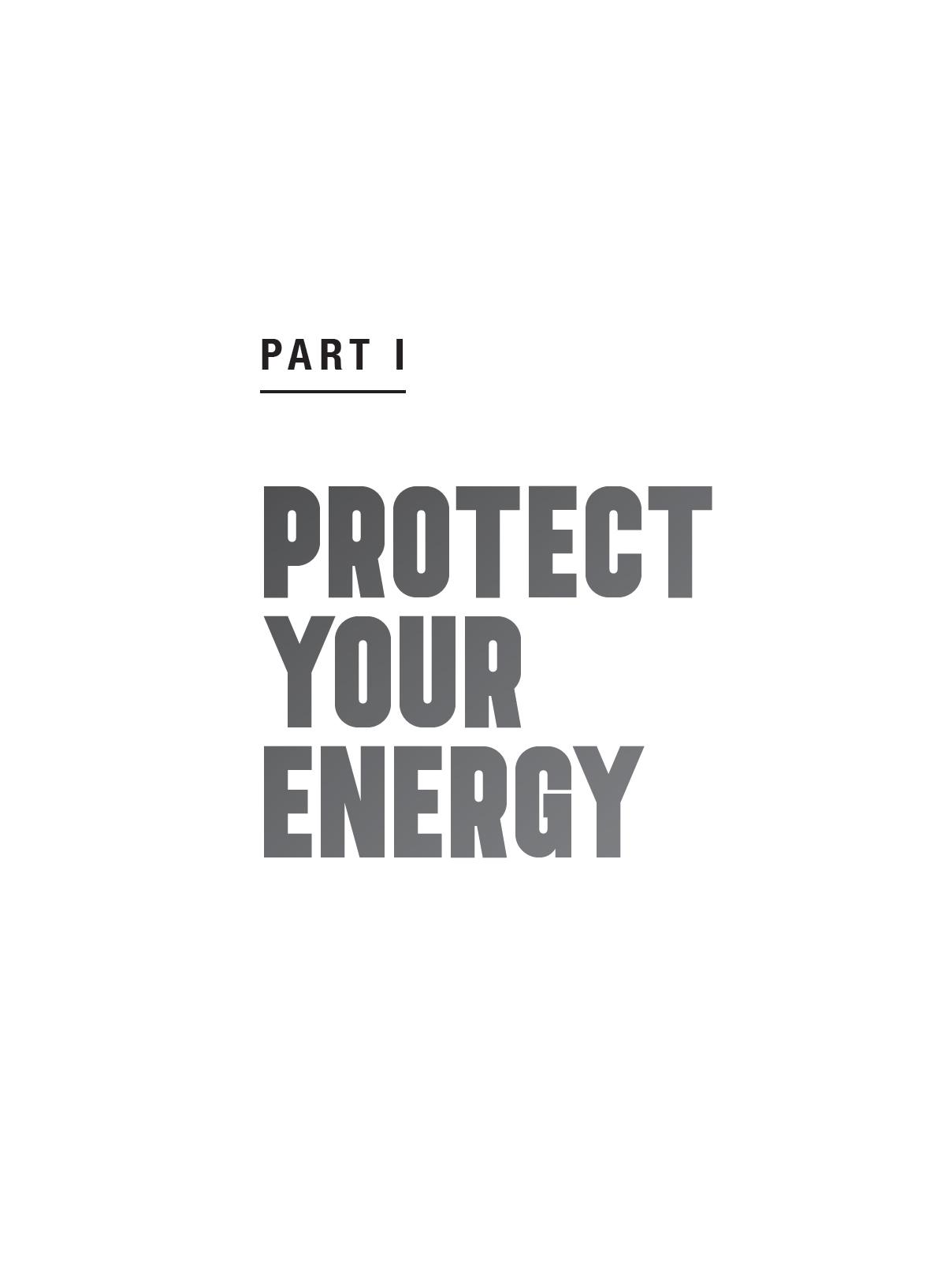INTRODUCTION
Constant Battle
Before we get started, I want to take a second to say thank you. Thank you for taking ownership over your life. Thank you for embarking on a journey the majority of people may never go on. Many people talk about change. Many of them project the image of change. But the reality is, according to some recent research, only 8 percent actually put in the work to create change.
The goal is not for you to start this book—anyone can do that. The goal is for you to finish the book, be in that 8 percent, become what I call an “8 percenter,” and understand what protecting your peace is all about.
If I could pass on one thing to my kids and loved ones, that’s what it would be: how to create and protect their peace. I don’t mean me protecting their peace for them. I’m talking about showing them how protecting my peace changed my life, in the hope that it will inspire them to create their own unique formula. The intention of this book is similar. I haven’t created a strict how-to manual that tells you exactly what to do to protect your peace. Instead, I’m going to share my process, and what I have gained from creating it, to help you jump-start a process of your own. Along the way, you’ll come to understand what I mean when I talk about peace—and why protecting yours is the most important thing you can do.
THE BATTLE FOR YOUR PEACE
I need you to understand something. What we will discuss in the following chapters is a matter of life and death. I’m not talking about physical death—at least, not right away—but a different kind. You see, losing your peace will lead to an internal death. The death of your dreams and your goals. The death of your best, most fulfilled self.
The battle going on for your peace is a silent one—and there have been too many people who have already lost these silent battles. In a
world full of posts, filters, and Photoshop, it’s not hard to guess why many of us feel so let down when we aren’t perfect. When trying to be perfect (a losing game 100 percent of the time), we fail to talk about our silent battles. This can lead to serious depression, one of the major thieves of our peace. In 2021, 48,183 people in the United States alone took their life by suicide.1
I dedicated my life to helping people in 2009. The catalyst was when one of my best friends, my college roommate, Anthony, took his own life. At the time, I felt I could have done more. I felt like I wasn’t there enough. It was gut-wrenching to be so close to someone but then realize how far away I was from understanding what he was going through. Although it was devastating, Anthony’s life was not lost in vain. At that moment, I redefined my mission, which led me to many callings that I couldn’t have imagined before. It led me away from the career I’d hoped to have as a pro football player. It led me to create my nonprofit organization RehabTime, a platform that has allowed me to speak from my heart and develop ideas that have resonated with people around the world. It has led me to a place where I can inspire people to recognize their greatness and become the best version of themselves. And it’s led me to create this book for you.
I know God has allowed me to have certain experiences in my life, so that I can be a vessel to assist others in realigning themselves on the path toward peace. I’ve learned to identify common themes that I see in people who are losing their peace so that I can help them on this path. And the path starts with disconnecting from whatever may be stealing your peace to begin with. I’m guessing that you’re familiar with many of these thieves yourself. Maybe you’re in a silent war with one or even several of them right now. That’s okay. I’ve been there. Just because you’ve had a few bad chapters, that doesn’t mean your story can’t end well. Those chapters don’t have to define your life. In fact, they can be used to refine your life, depending on your perspective and willingness to heal.
If y’all are with me and ready to boost your life with the key ingredient that so many overlook daily, I need you to repeat this mantra with me out loud:
I. Declare. War!
War against anything and everything that is taking away from my
This simple five-letter word is the key that unlocks ultimate satisfaction and true happiness. Internal wealth.
A PRESCRIPTION FOR PEACE
What comes to mind when you think of the greatest wealth in the world? Dollar signs? Certain celebrities? The blue check mark on your socials? Mansions? Extra commas and zeros in your bank account? If so, don’t feel bad. Many of us associate wealth with these things. In fact, that’s how I thought for many years of my life. I believe we are programmed to think this way. It’s part of the age we live in. Isn’t it ironic that although there is a heavy cost that goes along with each of the items listed above, the inner peace that you cannot see or hold in the palm of your hand is what is truly priceless? Peace does not depend on everything going on around you. It depends on what is going on inside you.
Look up the word peace in the dictionary, and you’ll see it defined something like this:
1. Freedom from disturbance; tranquility.
2. A state or period in which there is no war or a war has ended.
The second definition brings me back to an important point. There is a constant battle, both internal and external, that we all face for our peace every day. In today’s world, where technology is advancing by the day and there is never a shortage of distractions, the enemy just gets stronger and stronger One of my goals in this book is to help you understand where the battle lines are. I want you to understand your own worth so you’ll know just how much you have to fight for
I have heard before that some things in life are simple but not easy. For example, going for a walk in nature is simple for many of us. But distractions like scrolling on our phone might make it not so easy to find the time to go for that walk. Simple, not easy. Like many aspects of life, when I think of peace, it seems simple in its nature—yet not easy to attain or sustain. It must be protected at all costs.
So, in this book, I want to offer you my own prescription for peace.
My personal prescription—we’ll call it the Protect Your Peace Process—involves nine principles, divided into three sections. The first section, Protect Your Energy, discusses the power of boundaries, the importance of disconnecting from negative distractions, and knowing your own worth. The second section, Protect Your Mind, teaches you how to trust your vision, guard your focus, and shift your perspective. In the final section, Protect Your Soul, we’ll talk about how you can create happiness, align internally, and live in fulfillment. At the end of each chapter, you’ll find a Protect Your Peace Practice to help you put the ideas to use right away I hope you keep note of your responses and share them on your social if you’re inspired. Be sure to tag me @TrentShelton so I can see how you’re doing!
A CRITICAL MESSAGE
Before we dive in, I have to share another foundational piece that led me to this moment with you. In 2015, life was the definition of bittersweet for me. My career as a speaker and coach was taking off, the videos I made were spreading, doors were opening, and people were starting to discover me. I embarked on a 32-city tour. My team handled all the logistics, rather than using Ticketmaster, Live Nation, or anyone like that. We sold out every U.S. city and were fortunate enough to book several shows outside the United States.
But then I burned out. I had very little peace. Everything was great externally, but internally I was defeated. I hate to say it, but these gifts and blessings God had given me began to feel like a burden. I felt like I was in prison within my purpose. That was on me, though. I had yet to understand boundaries, or the other principles of peace that we are going to dive into in this book.
In San Francisco there was one memorable night when I felt empty but determined to fill others up. I remember praying backstage, “God, please just use me. I don’t know what I have left in me, but please just use me how You want to.” Despite feeling drained, I was able to get onstage and deliver. After my talk I went around smiling and taking pictures with attendees, still feeling empty inside. I found the back door of the venue, which led to a smoky alleyway, like in the movies. It was dark and I thought I was
alone, so I let myself break down. “What’s going on?!” I cried out. This is supposed to be better; I am supposed to feel better.
Just then I looked up and saw what appeared to be an unhoused man listening to me.
To make myself feel better, I thought, let me bless this man. I reached into my pocket for a hundred-dollar bill and held it out. “No, I don’t need that,” he said “Don’t feel sorry for me. I actually feel sorry for you. I see your name and face on the billboard and how you are the guy everyone is here to see. I’m looking at you right now and it seems like you have a lot missing from your life. It seems like you have everything that means nothing. It may look like I have nothing, but I still have everything. That’s because I have peace. I have peace in my life that’s unconditional, and my spirit can always identify a soul that’s missing what it needs most.”
I hopped in my rental car and drove down to the waterfront, which was not far away from the venue. The salt in the air and the sea breeze on my face was deeply refreshing as I looked out over the bay and just prayed. I simply asked God to fill me up with peace. This was the moment where the words protect your peace were birthed into my soul and became a standard of how I would live my life from then on.
Looking back and piecing all of this together, I now realize that God not only helped me on stage that night. He also gave me the gift of a breaking point, and he gave me a messenger in a form that I did not expect, which led me to seek what I now see as the single most important thing. My pursuit of peace officially started in that moment. Since then it has taken me through many ups and downs. Each step along the way has continued to emphasize that no matter how much you seem to have externally, it will never define or sustain your happiness. That comes from realizing what is truly important in life. That comes from your peace. The time is now to recognize and protect it!
What I’m sharing with you in these pages is my journey. I hope it will inspire you to go on your own journey, which might look different from mine. I am here to give you everything I have. But like I have always said …
It all starts with you!
Another random document with no related content on Scribd:
I watched the services over television while my chief editors visited me one by one unaware of what had happened, ignoring the presence of the guards. It was assumed that I was too shocked by grief to go to the office. Needless to say, I did not mention to any of them what had happened. At first I had thought it best to expose Paul as a murderer and a fraud but, on second thought (the second thought which followed all too swiftly upon the first, as Paul had no doubt assumed it would), I did not want to risk the ruin of our work. Instead, I decided to wait, to study Paul’s destruction, an event which I had grimly vowed would take place as soon as possible. He could not now get rid of either Iris or me in the near future and all we needed, I was sure, was but a week or two. I was convinced of this though I had no specific plan. Iris had more influence, more prestige in the Establishment than Paul, and I figured, correctly as later events corroborated, that Cave’s death would enhance her position. As for myself, I was not without influence.
I kept my lines of communication clear the next few days during what was, virtually, a house-arrest. The editors came to me regularly and I continued to compose editorials. The explanation for my confinement to my room was, according to a bulletin signed by Stokharin, a mild heart condition. Everyone was most kind. I was amused when I first heard of the diagnosis: one of Stokharin’s pellets in my food and death would be ascribed to coronary occlusion, the result of the strain attendant upon Cave’s death. I had less time than I thought. I made plans.
Paul’s funeral oration was competent though less than inspiring. The Chief Resident of Dallas, one of the great new figures of the Establishment, made an even finer speech over the corpse. I listened attentively, judging from what was said and what was not said the wind’s direction: it was quite obvious that Cavesway was to be the heart of the doctrine. Death was to be embraced with passion; life was the criminal; death the better reality; consciousness was an evil which, in death’s oblivion, met its true fate ... man’s one perfect virtuous act was the sacrifice of his own consciousness to the
pure nothing from which, by grim accident, it had come, a malignancy in creation. The Chief Resident of Dallas was most eloquent, and chilling.
Even sequestered in my room, I caught some of the excitement which circled the globe like a lightning storm. Thirty-five hundred suicides were reported within forty-eight hours of Cave’s death. The statisticians lost count of the number of people who fought to get inside the building to see Cave in death. From my window, however, I could see that Park Avenue had been roped off for a dozen blocks. People, like ants, swarmed toward the gates of the tower.
I sent messages to Iris but received none, nor, for that matter, did I have any assurance that she had got mine. Paul’s adventures I followed on television and from the reports of my editors who visited me regularly, despite Stokharin’s orders.
On the third day, I was allowed to go to my office: Paul having decided that it would be thought odd if I were to die so soon after Cave and, too, he was no doubt relieved to discover that I had not revealed to my friends what actually had happened. Having established the fact of my weak heart, my death could be engineered most plausibly at any time.
I did not see him face to face until the fourth day, when John Cave’s ashes were to be distributed over the United States. Stokharin, Paul and I sat in the back seat of a limousine at the head of a motorcade which, beginning at the tower, terminated at the airport where the jet-plane which would sprinkle the ashes over New York, Seattle, Chicago and Los Angeles was waiting, along with a vast crowd and the President of the United States, an official Christian but known to incline, as Presidents do, toward the majority.... Cavites were the majority and had been for almost two years.
I was startled to find Paul and Stokharin in the same automobile. It had been my understanding that we were to travel separately in the
motorcade. They were most cordial.
“Sorry to hear you’ve been sick, Gene,” Paul grinned ingenuously. “⁗Mustn’t strain the old ticker.”
“I’m sure the good doctor will be able to cure me,” I said cheerfully. They both laughed loudly; then the car pulled away from the tower and drove down Park Avenue at the head of a long procession. Crowds lined the street as we drove slowly by. They were curiously still, as though they hardly knew how to react: this was a funeral yet Cavesway was glorious. Some cheered; most simply stared and pointed at our car, recognizing Paul. I suddenly realized why they were so interested in this particular car: on the floor, at Paul’s feet, was what looked like a large flower pot covered with gold foil.
“Are those the ashes?”
Paul nodded. “Did an extra quick job, too, I’m glad to say. We didn’t want any slip up.”
“Where’s Iris?”
“I was going to ask youthat.” Paul looked at me sharply. “She disappeared yesterday and it’s very embarrassing for all of us, very inconsiderate too: she knew I especially wanted her at the ceremony. She knows that everyone will expect to see her.”
“I think she took the idea of Cavesway most illogically,” said Stokharin, his usual sang-froid had returned, his breakdown forgotten. “She should be grateful to us for making all this possible, despite Cave’s weakness.”
I ignored Stokharin. I looked at Paul who was beaming at the crowd, acknowledging their waves with nods of his head. “What will you do now?”
“You heard the ceremony?”
“Yes.”
“Well, just that. Cavesway has become universal. Even the economists in Washington have privately thanked us for what we’re doing to reduce the population. There’s a theory that by numerous voluntary deaths wars might decrease since ... or so the proposition goes ... they are nature’s way of checking population.”
“Perhaps you’re right.” I assumed a troubled expression as I made the first move of my counteroffensive.
Paul looked away from the crowd to regard me briefly, shrewdly. “You don’t think I trust you, do you?”
I shrugged, “Why not? I can’t change Cavesway now.”
Paul grunted. I could see that he did not believe this spurious volteface; nevertheless, an end to my active opposition would force him to revise his plans; this would, I hoped, give me the time I needed. I pressed on: “I think we can compromise. Short of rigging my death which would cause suspicion, you must continue to put up with me for a while. You’ve nothing to fear from me since you control the Establishment and since the one weapon I have against you I will not use.”
“You mean....”
“My having witnessed the murder of Cave. If I had wanted to I could have revealed this before the cremation. An autopsy would certainly have ruined everything for you.”
“Why didn’t you?” I could see that Paul was genuinely interested in my motives.
“Because it would have meant the end of the work. I saw no reason to avenge Cave at such a cost: you must remember he was not a god to me, any more than you are.”
This twist of a blunt knife had the calculated effect: “What a cold devil you are!” said Paul, almost admiringly. “I wish I could believe you.”
“There’s no reason not to. I was opposed to the principle of suicide. It is now firmly established. We must go on from there.”
“Then tell me where Iris is.”
“I haven’t any idea. As you know, I’ve been trying to get in touch with her for days; your people intercepted everything. How didshe manage to get away?”
“One of the guards let her out. I thought he was one of our boys but it seems she worked on him and he left with her. I’ve alerted all the Centers; so far no one’s seen her.”
Just before Grand Central Station, the crowd began to roar with excitement and Paul held up the jar of ashes which glittered in his hands; the crowd went wild and tried to break through the police lines. The cortege drove a bit faster and Paul set the ashes down; he looked triumphant but tired, as though he’d not slept in a month: one eyelid, I saw, was twitching with fatigue.
“When are we to have a directors’ meeting?” I asked as we crossed the bridge which spanned the Hudson. “We’re still legally a company. We must elect a new board chairman.”
“As soon as we find Iris,” said Paul. “I think we should all be there, don’t you? Two to two.”
“Perhaps three to one on the main things,” I said, allowing this to penetrate, aware that his quick mind would study all the possibilities
and arrive at a position so subtle and unexpected as to be of use to me if I, in turn, were quick enough to seize my opportunity.
At the airport, a detachment of airborne troops were drawn up before a festooned reviewing stand. Near by the Marine Band played incongruous marches while in the center of the stand, surrounded by cameras and dignitaries, stood the smiling President of the United States.
2
The next day while I was examining the various accounts of the last ceremony, the chief editor came into my office, his face blazing with excitement: “Iris Mortimer!” was all he could say.
“Iris? Where?”
“Dallas.” He exploded the name in exhalation; then he told me: word had come from our office there that Iris had, a few hours before, denounced Paul for having ignored Cave’s last wishes to be embalmed and that, as a result of this and other infidelities to Cavesword, she, as ranking director and with the full concurrence of the Chief Resident of Dallas, was calling a Council of Residents to be held the following week at Dallas to determine the future course of the Establishment.
I almost laughed aloud with pleasure. I had not believed she would show such vigor and daring. I had feared that she might choose to vanish into obscurity, her life ended with Cave ... even at my most optimistic, I had not dreamed she would act with such realism, exploiting a rivalry between Paul and the Chief Resident of Dallas, the premier member of the Council of Residents, a group that, until now, had existed for purely ceremonial reasons, exerting no influence upon the administration of the Establishment which, while
Cave lived, was by Paul directed. Now with one stroke Iris had undermined Paul by going directly to the Establishment.
I moved swiftly. The Journalwas at that moment going to press. I scribbled a brief announcement of the coming Council of Residents, naming Iris as Cave’s spiritual heir and custodian of the Establishment. By telephone, I ordered a box to be cut out of the first page. I had not acted a moment too soon for a few minutes after my telephone call to the compositor, Paul came to my office, furious. He slammed the door behind him. We were alone for the first time in weeks.
“You knew this was going to happen.”
“I wish I had.”
He paced the floor quickly, eyes shining. “I’ve sent out an order countermanding Iris. I’ve also removed the Resident at Dallas. I’m still in charge of the Establishment. I control the funds and I’ve told every damned Resident in this country that if he goes to Dallas I’ll cut off his Center without a penny.”
“It won’t work.” I smiled amiably at Paul. “Your only hold over the Establishment is legal. You are the vice president of the corporation and now, at least for the interim, you’re in charge. Fine. But since you’ve become so devoted to the letter of the law you can’t act without consulting your directors and two of them will be in Dallas, reorganizing.”
He cursed me for some minutes: then abruptly he stopped. “You won’t go to Dallas. You’re going to be here for the directors’ meeting which cuts off every Resident who attends that circus without a penny. We own the damned Centers; we can appoint whom we like. You’re going to help ratify my new appointments.”
I pressed the buzzer in my chair: a secretary came in. I told her to get me a reservation on the next plane to Dallas; then, before she
had closed the door behind her, I was halfway through it. I turned to look back at Paul who stood now quite alone in the office. “You had better come too,” I said. “It’s all over.”
The new Establishment was many months in the making. The Council of seven hundred Residents from all parts of the world sat in general session once a week and in various committees the rest of the time. Iris was everywhere at once, advising, encouraging, proposing. We had adjoining suites in the huge white marble Center which had now become (and was to remain) the capitol of the Cavite Establishment.
The Residents were an extraordinary crew, ranging from zealous maniacs to urbane, thoughtful men. None had been in the least disturbed by Paul’s threats and with Iris and myself as chief stockholders (Clarissa had turned her voting shares over to Iris, I discovered), we dissolved the old company and a new organization was fashioned, one governed by the Council of Residents who, in turn, chose an heir to Cave and an administrative assistant to direct the affairs of the Establishment. Iris was unanimously appointed Guardian of Cavesword while the Chief Resident of Dallas undertook Paul’s old administrative duties. From a constitutional point of view the Council was in perfect agreement, accepting Iris’s guidance without demur.
I, myself, was something of a hero for having committed the Journal at a crucial moment to the Dallas synod. I was made an honorary Resident (Dubuque, Iowa, was given me as a titular Center) and appointed to the Executive Committee which was composed of Iris, Dallas, two elected Residents and myself.
We worked harmoniously for some weeks. Each day we would issue bulletins to the news-services which had congregated in the city, reporting our progress zealously, devotedly.
Paul arrived in the second week. He came secretly and unannounced. I have no idea what it was that he said to Iris or what she said to him; all I know is that a few hours after their meeting in the Center, he took Cavesway of his own free will and to my astonishment.
I hadn’t believed it possible, I said, when Iris told me, shortly after the Center announced the presence of Paul Himmell among the dead for that week (regular lists were published of those who had used the Center’s facilities to take Cavesway); in fact, so quietly was it handled that very little was made of it in the press which did not even report the event until ten days after it had taken place.
“We may have misunderstood Paul,” Iris was serene. Her figure had become in the last year thick and maternal while her hair was streaked with premature white. We were alone in the Committee Room, waiting for our fellow committeemen who were not due for another half hour. The August sun shone gold upon the mahogany table, illuminating warmly, like a Byzantine mosaic, the painting of Cave which hung behind her chair.
“He really did do it himself?” I looked at her suspiciously. She smiled softly, with amusement.
“He was persuaded,” she said. “But he did it himself, of his own free will.”
“Not forced?”
“I swear not. He was more sincere than I’d ever thought. He believed in Cavesway.” How naturally she said that word which she had so desperately tried to keep from ever existing. We had not once alone referred to the murder of Cave, both acting, for different
reasons, as though his death had been, as the world now thought, his own doing.
“You had really planned to go away?” I asked.
She looked at me, suddenly alert, impersonal: “That’s all finished, Gene. We must keep on in the present. I never think now of anything but Cavesword and Cavesway. It does no good to think of what might have been.”
And that was the most we were ever to say to one another about the crisis in our lives. We talked of the present; we made plans. Stokharin had disappeared at the same time Paul flew to Dallas and we both decided it was wisest to forget him: certainly he would not trouble us again. There was no talk of vengeance.
The committee members, important and proud, joined us and we took up the day’s problem which was, by some irony, the standardization of facilities for Cavesway in the different Centers. Quietly, without raising our voices, in a most good-humored way, we broke neatly in half on Cavesway. I and one other Resident objected to the emphasis on death. Dallas and the fourth member were in favor of expanding the facilities, both physically and psychologically, until every Cavite at the moment when he felt his social usefulness ebbing could take Cavesway. We argued reasonably with one another until it became apparent that there was no possible ground for compromise.
It was put to a vote and Iris broke the tie by endorsing Cavesway.
This morning as I finished the above lines I suffered a mild stroke ... a particularly unusual one since I did not become, as far as I know, unconscious. I was rereading my somewhat telescoped account of
the Council of Dallas when, without warning, the blow fell; a capillary burst in my brain and I felt as though I were losing my mind in one last fantastic burst of images. The pain was negligible, no worse than a headache, but the sensation of letting go one’s conscious mind, one’s control was terrifying. I tried to move from my work-table, to call for help, but I was too weak. For one long giddy moment I thought: I am dying; this is the way it is and, even in my anguish, I was curious, waiting for that approach of winged darkness which years ago I once experienced when I fainted and which I have always since imagined to be like death’s swift entrance.
But then my body recovered from the assault: the wall was breached, the enemy is in the city but the citadel is still intact and yet I live.
Weakly I got up, poured myself a jigger of brandy and then, having drunk it all at once, fell across my bed and slept and did not dream, which is a rare blessing in these feverish last days.
I was awakened by the sensation of being watched. I opened my eyes and saw above me, looking like a bronze figure of Anubis, Jessup who said, “I’m sorry ... didn’t mean to disturb you. Your door was open and I....”
“Perfectly all right,” I said, as smoothly as I could, drugged with sleep. I pulled myself up against the pillows. “Excuse me for not getting up but I’m still a little weak from my illness.”
“I wanted to see you,” said Jessup, sitting down in the chair which I indicated beside the bed. “I hope you don’t mind my barging in like this.”
“Not at all. How do you find Luxor?” I wanted to delay as long as possible the questions which I was quite sure he would want to ask me, questions concerning my identity.
“The people are not so fixed in error as we’d been warned. There’s a great curiosity about Cavesword.” His eyes had been taking in the details of the room with some interest; to my horror I recalled that I had left the manuscript of my work on the table instead of hiding it as usual in the washstand. He saw it. “Your ... memoirs?” He looked at me with a polite interest which I was sure disguised foreknowledge.
“A record of my excavations,” I said, in a voice which descended the scale to a whisper. “I do it for my own amusement, to pass the time.”
“I should enjoy reading it.”
“You exaggerate, in your kindness,” I said, pushing myself higher on the bed, preparing if necessary for a sudden spring.
“Not at all. If it is about Egypt, I should read it. There are no contemporary accounts of this country ... by one of us.”
“I’m afraid the details of findings in the valley yonder,” I gestured toward Libya and the last acres of the kings, “won’t be of much use to you. I avoid all mention of people less than two millennia dead.”
“Even so.” But Jessup did not pursue the subject. I relaxed a little.
“I must tell you,” he said suddenly, “that I was suspicious of you.”
Now I thought, now it comes; then I was amused: right at the end they arrive, when it was too late for them, or for me. “What form did your suspicions take?” My fear left me in one last flurry, like a bird departing in a cold wind for another latitude, leaving the branch which held it all summer through to wither in the snow.
“I thought you might be the one we have so often heard of ... in legend, that is: the enemy of Cave.”
“Which enemy?”
“The nameless one or at least we know a part of his name if lutherist is derived from it.”
“What made you suspect me?”
“Because were I an enemy of Cave and were I forced to disappear, I should come to just such a town in just such a country as this.”
“Perfectly logical,” I agreed. “But there are many towns in the Arab League, in Asia too. Why suppose one old man to be this mythical villain?”
Jessup smiled. “Intuition, I’m afraid. A terrible admission from one who has been trained in the logic of Cavesword. It seemedexactly right. You’re the right age, the right nationality ... in any case, I telephoned Dallas about you.”
I took this calmly. “You talked to the Chief Resident himself?”
“Of course not.” Jessup was surprised at my suggestion. “One just doesn’t call the Chief Resident like that. Only the senior Residents evertalk to him personally. No, I talked to an old friend of mine who is one or the five principal assistants to the Historian General. We were in school together and his specialty is the deviationists of the early days.”
“And what did you learn from this scholar?”
Jessup gave me a most charming smile. “Nothing at all. There was no such person as I thought existed, as a number of people thought existed. It was all a legend ... a perfectly natural one for gossip to invent. There was a good deal of trouble at the beginning, especially over Cavesway. There was even a minority at Dallas which refused to accept the principle of Cavesway without which of course there could be no Establishment. According to the stories one heard as
recently as my university days, ten years ago, the original lutherist had led the opposition to Iris, in the Council and out. For a time it looked as though the Establishment might be broken in two (this, you must remember since you were contemporary to it; fortunately, our Historical Office has tended more and more to view it in the long perspective and popular works on Cave now make no reference to it); in any case, there was an open break and the minority was soon absorbed by the majority.”
“Painlessly?” I mocked him. Could he be telling the truth? or was this a trap?
Jessup shrugged. “These things are never without pain. It is said that an attempt was made on our mother Iris’s life during the ceremony of Cave’s ashes. We still continue it, you know.”
“Continue what?”
“The symbolic gathering of the ashes. But of course you know the origin of all that. There was a grave misinterpretation of Cave’s last wishes. His ashes were scattered over the United States when it was his wish to be embalmed and preserved. Iris, each year, traveled to the four cities over which the ashes had been distributed and she collected a bit of dust in each city to symbolize her obedience to Cavesword in all things. At Seattle, during this annual ceremony, a group of lutherists tried to assassinate her.”
“I remember,” I said. I had had no hand in that dark episode but it provided the Establishment with the excuse they needed. My partisans were thrown in prison all over the country. The government, which by then was entirely Cavite, handed several thousand over to the Centers where they were indoctrinated, ending the heresy for good. Iris herself had secretly arranged for my escape ... but Jessup could know nothing of this.
“Of course you know these things, perhaps even better than I since you were alive then. Forgive me. I have got into the bad Residential
habit of explaining the obvious. An occupational disease.” He was disarming. “The point I’m trying to make is that my suspicions of you were unworthy and unfounded since there was no leader of the lutherists to escape; all involved responded nicely to indoctrination and that was the end of it. The story I heard in school was a popular one. The sort that often evolves ... like Lucifer and the old Christian God, for instance ... for white there must be black, that kind of thing. Except that Cave never had a major antagonist, other than in legend.”
“I see. Tell me, then, if there was no real leader to the lutherists, how did they come by their name?”
His answer was prompt. “Martin Luther. My friend in the H.O. told me this morning over the telephone. Someone tried to make an analogy, that’s all, and the name stuck though, as a rule, the use of any words or concepts derived from the dead religions is frowned upon. You know the story of Martin Luther? It seems that he....”
“I know the story of Martin Luther,” I answered, more sharply than I intended.
“Now I’ve tired you.” Jessup was sympathetic. He got to his feet. “I just wanted to tell you about my suspicions, that’s all; I thought it might amuse you and perhaps bring us closer together for I’d very much like to be your friend, not only for the help you can give me up here but also because of your memories of the old days when Cave and Iris, his mother, still lived.”
“Iris was at least five years younger than Cave.”
“Everyone knows that, my friend. She was his spiritualmother, as she is ours. 'From the dark womb of unbeing we emerge in the awful light of consciousness from which the only virtuous escape is Cavesway.’ I quote from Iris’s last testament. It was found among her papers after her death.”
“Did shetake Cavesway?”
Jessup frowned. “It is said that she died of pneumonia but had death notcome upon her unexpectedly it was well known that she would have taken Cavesway. There has been considerable debate over this at Dallas. I hear from highly placed people that before many years have passed they will promulgate a new interpretation, applying only to Iris, which will establish that intent and fact are the same, that though she died of pneumonia she intendedto take Cavesway and, therefore, took Cavesway in spirit and therefore in fact.”
“A most inspiring definition.”
“It is beautifully clear, though perhaps difficult for an untrained mind. Can I read your memoir?” His eyes strayed curiously to the table.
“When it’s finished,” I said. “It’s almost done now. In a few days perhaps; I should be most curious to see how it strikes you.”
“Well, I won’t take up any more of your time. I hope you’ll let me come to see you.”
“Nothing could give me more pleasure.” And then, with a pat on my shoulder and a kind suggestion that should I choose Cavesway he would be willing to administer the latest drug, Jessup departed.
I remained very still for some minutes, holding my breath for long intervals, trying to die. Then, in a sudden rage, I hurled my pillow across the room and beat the mattress with my fists: it was over. All was at an end except my own miserable life which will soon enough be gone. My name erased; my work subverted; all that I most detested regnant in the world. I could have wept had there been one tear left in me. Now there is nothing I can do but finish this narrative ... for its own sake since it will be thought, I know, the
ravings of a mad man when Jessup reads it, as he surely will after I am dead.
I have tried now for several hours to describe my last meeting with Iris but I find that my memory is at last seriously impaired, the result, no doubt, of that tiny vein which broke this morning in my brain. It all seems a jumble. I think there were several years in which I was in opposition. I think that I had considerable support and I am almost sure that, until the attempted assassination of Iris at Seattle, I was close to dominating the Council of Residents. The idiotic attempt on her life, however, ruined everything. She knew of course that I had had nothing to do with it but she was a resolute leader and she took this opportunity to annihilate my party. I believe we met for the last time in a garden. A garden very like the one where we first met in California. No, on the banks of the Hudson ... I must reread what I have written to refresh my memory. It is all beginning to fade rapidly.
In any case, we met in a garden in the late autumn when all the trees were bare. She was white-haired then, though neither of us was much over forty.
I believe that she wept a little: for we were the last who had been close to Cave, heirs both though now adversaries, she victrix and I vanquished. I never loved her more than at that last moment; of this I am sure. We talked of possible places of exile. She had arranged for my passage on a ship to Alexandria under the name of Richard Hudson (yes, she who erased my name, in her compassion, gave me a new one). She did not want, however, to know where I intended to go from there.
“It would be a temptation to the others,” she said. I remember that one sentence and I do remember the appearance of the garden though its location I have quite forgotten: there was a high wall all around it and the smell of moldering leaves was acrid. From the mouth of a satyr no water fell in a mossy pool.
Ah yes! the question and the answer. That’s it of course. The key. I had nearly lost it. Before I left, I asked her what it was that Cave had said to her when he was dying, the words the rest of us had not heard. At first she hesitated but then, secure in her power and confident of her own course, she told me: “He said: 'Gene was right.’” I remember looking at her with shock, waiting for her to continue, to make some apology for the monstrousness of her deeds, for her reckless falsification of Cave’s life and death. But she said no more: there was, I suppose, no explanation she might have made. We parted without farewells, without more words.
I left the gray garden which had become bitter cold during our conversation. I left America that same day and my real life ended.
There’s more to it than this but I cannot get it straight in my mind. Something has happened to my memory. I wonder if perhaps I have not dreamed all this: a long nightmare drawing to its bitter close in this dry ruin of an older world.
It is late now. I still live though I am exhausted and indifferent to everything except that violent living sun whose morning light has just this moment begun to strike upon the western hills across the river: all that is left, all that ever was, the red fire.
I shall not take Cavesway even though I die in pain and confusion. Anubis must wait for me in the valley until the last and, even then, I shall struggle in his arms for I know now that life, mylife was more valuable than I knew, more significant and virtuous than the other’s was in her bleak victory.
Though my memory is going from me rapidly, the meaning is clear and unmistakable and I see the pattern whole at last, marked in giant strokes upon the air: I was he whom the world awaited. I was that figure, that messiah whose work might have been the world’s delight, and liberation. But the villain death once more undid me and to himbelongs the moment’s triumph. Yet life continues, though I do
not. Time bends upon itself. The morning breaks. Now I will stop for it is day.
1947 to November, 1953: Barrytown, N. Y.
*** END OF THE PROJECT GUTENBERG EBOOK MESSIAH ***
Updated editions will replace the previous one—the old editions will be renamed.
Creating the works from print editions not protected by U.S. copyright law means that no one owns a United States copyright in these works, so the Foundation (and you!) can copy and distribute it in the United States without permission and without paying copyright royalties. Special rules, set forth in the General Terms of Use part of this license, apply to copying and distributing Project Gutenberg™ electronic works to protect the PROJECT GUTENBERG™ concept and trademark. Project Gutenberg is a registered trademark, and may not be used if you charge for an eBook, except by following the terms of the trademark license, including paying royalties for use of the Project Gutenberg trademark. If you do not charge anything for copies of this eBook, complying with the trademark license is very easy. You may use this eBook for nearly any purpose such as creation of derivative works, reports, performances and research. Project Gutenberg eBooks may be modified and printed and given away—you may do practically ANYTHING in the United States with eBooks not protected by U.S. copyright law. Redistribution is subject to the trademark license, especially commercial redistribution.
START: FULL LICENSE
THE FULL PROJECT GUTENBERG LICENSE
PLEASE READ THIS BEFORE YOU DISTRIBUTE OR USE THIS WORK
To protect the Project Gutenberg™ mission of promoting the free distribution of electronic works, by using or distributing this work (or any other work associated in any way with the phrase “Project Gutenberg”), you agree to comply with all the terms of the Full Project Gutenberg™ License available with this file or online at www.gutenberg.org/license.
Section 1. General Terms of Use and Redistributing Project Gutenberg™ electronic works
1.A. By reading or using any part of this Project Gutenberg™ electronic work, you indicate that you have read, understand, agree to and accept all the terms of this license and intellectual property (trademark/copyright) agreement. If you do not agree to abide by all the terms of this agreement, you must cease using and return or destroy all copies of Project Gutenberg™ electronic works in your possession. If you paid a fee for obtaining a copy of or access to a Project Gutenberg™ electronic work and you do not agree to be bound by the terms of this agreement, you may obtain a refund from the person or entity to whom you paid the fee as set forth in paragraph 1.E.8.
1.B. “Project Gutenberg” is a registered trademark. It may only be used on or associated in any way with an electronic work by people who agree to be bound by the terms of this agreement. There are a few things that you can do with most Project Gutenberg™ electronic works even without complying with the full terms of this agreement. See paragraph 1.C below. There are a lot of things you can do with Project Gutenberg™ electronic works if you follow the terms of this agreement and help preserve free future access to Project Gutenberg™ electronic works. See paragraph 1.E below.
1.C. The Project Gutenberg Literary Archive Foundation (“the Foundation” or PGLAF), owns a compilation copyright in the collection of Project Gutenberg™ electronic works. Nearly all the individual works in the collection are in the public domain in the United States. If an individual work is unprotected by copyright law in the United States and you are located in the United States, we do not claim a right to prevent you from copying, distributing, performing, displaying or creating derivative works based on the work as long as all references to Project Gutenberg are removed. Of course, we hope that you will support the Project Gutenberg™ mission of promoting free access to electronic works by freely sharing Project Gutenberg™ works in compliance with the terms of this agreement for keeping the Project Gutenberg™ name associated with the work. You can easily comply with the terms of this agreement by keeping this work in the same format with its attached full Project Gutenberg™ License when you share it without charge with others.
1.D. The copyright laws of the place where you are located also govern what you can do with this work. Copyright laws in most countries are in a constant state of change. If you are outside the United States, check the laws of your country in addition to the terms of this agreement before downloading, copying, displaying, performing, distributing or creating derivative works based on this work or any other Project Gutenberg™ work. The Foundation makes no representations concerning the copyright status of any work in any country other than the United States.
1.E. Unless you have removed all references to Project Gutenberg:
1.E.1. The following sentence, with active links to, or other immediate access to, the full Project Gutenberg™ License must appear prominently whenever any copy of a Project Gutenberg™ work (any work on which the phrase “Project
Gutenberg” appears, or with which the phrase “Project Gutenberg” is associated) is accessed, displayed, performed, viewed, copied or distributed:
This eBook is for the use of anyone anywhere in the United States and most other parts of the world at no cost and with almost no restrictions whatsoever. You may copy it, give it away or re-use it under the terms of the Project Gutenberg License included with this eBook or online at www.gutenberg.org. If you are not located in the United States, you will have to check the laws of the country where you are located before using this eBook.
1.E.2. If an individual Project Gutenberg™ electronic work is derived from texts not protected by U.S. copyright law (does not contain a notice indicating that it is posted with permission of the copyright holder), the work can be copied and distributed to anyone in the United States without paying any fees or charges. If you are redistributing or providing access to a work with the phrase “Project Gutenberg” associated with or appearing on the work, you must comply either with the requirements of paragraphs 1.E.1 through 1.E.7 or obtain permission for the use of the work and the Project Gutenberg™ trademark as set forth in paragraphs 1.E.8 or 1.E.9.
1.E.3. If an individual Project Gutenberg™ electronic work is posted with the permission of the copyright holder, your use and distribution must comply with both paragraphs 1.E.1 through 1.E.7 and any additional terms imposed by the copyright holder. Additional terms will be linked to the Project Gutenberg™ License for all works posted with the permission of the copyright holder found at the beginning of this work.
1.E.4. Do not unlink or detach or remove the full Project Gutenberg™ License terms from this work, or any files
containing a part of this work or any other work associated with Project Gutenberg™.
1.E.5. Do not copy, display, perform, distribute or redistribute this electronic work, or any part of this electronic work, without prominently displaying the sentence set forth in paragraph 1.E.1 with active links or immediate access to the full terms of the Project Gutenberg™ License.
1.E.6. You may convert to and distribute this work in any binary, compressed, marked up, nonproprietary or proprietary form, including any word processing or hypertext form. However, if you provide access to or distribute copies of a Project Gutenberg™ work in a format other than “Plain Vanilla ASCII” or other format used in the official version posted on the official Project Gutenberg™ website (www.gutenberg.org), you must, at no additional cost, fee or expense to the user, provide a copy, a means of exporting a copy, or a means of obtaining a copy upon request, of the work in its original “Plain Vanilla ASCII” or other form. Any alternate format must include the full Project Gutenberg™ License as specified in paragraph 1.E.1.
1.E.7. Do not charge a fee for access to, viewing, displaying, performing, copying or distributing any Project Gutenberg™ works unless you comply with paragraph 1.E.8 or 1.E.9.
1.E.8. You may charge a reasonable fee for copies of or providing access to or distributing Project Gutenberg™ electronic works provided that:
• You pay a royalty fee of 20% of the gross profits you derive from the use of Project Gutenberg™ works calculated using the method you already use to calculate your applicable taxes. The fee is owed to the owner of the Project Gutenberg™ trademark, but he has agreed to donate royalties under this paragraph to the Project Gutenberg Literary Archive Foundation. Royalty
payments must be paid within 60 days following each date on which you prepare (or are legally required to prepare) your periodic tax returns. Royalty payments should be clearly marked as such and sent to the Project Gutenberg Literary Archive Foundation at the address specified in Section 4, “Information about donations to the Project Gutenberg Literary Archive Foundation.”
• You provide a full refund of any money paid by a user who notifies you in writing (or by e-mail) within 30 days of receipt that s/he does not agree to the terms of the full Project Gutenberg™ License. You must require such a user to return or destroy all copies of the works possessed in a physical medium and discontinue all use of and all access to other copies of Project Gutenberg™ works.
• You provide, in accordance with paragraph 1.F.3, a full refund of any money paid for a work or a replacement copy, if a defect in the electronic work is discovered and reported to you within 90 days of receipt of the work.
• You comply with all other terms of this agreement for free distribution of Project Gutenberg™ works.
1.E.9. If you wish to charge a fee or distribute a Project Gutenberg™ electronic work or group of works on different terms than are set forth in this agreement, you must obtain permission in writing from the Project Gutenberg Literary Archive Foundation, the manager of the Project Gutenberg™ trademark. Contact the Foundation as set forth in Section 3 below.
1.F.
1.F.1. Project Gutenberg volunteers and employees expend considerable effort to identify, do copyright research on, transcribe and proofread works not protected by U.S. copyright
law in creating the Project Gutenberg™ collection. Despite these efforts, Project Gutenberg™ electronic works, and the medium on which they may be stored, may contain “Defects,” such as, but not limited to, incomplete, inaccurate or corrupt data, transcription errors, a copyright or other intellectual property infringement, a defective or damaged disk or other medium, a computer virus, or computer codes that damage or cannot be read by your equipment.
1.F.2. LIMITED WARRANTY, DISCLAIMER OF DAMAGES - Except for the “Right of Replacement or Refund” described in paragraph 1.F.3, the Project Gutenberg Literary Archive Foundation, the owner of the Project Gutenberg™ trademark, and any other party distributing a Project Gutenberg™ electronic work under this agreement, disclaim all liability to you for damages, costs and expenses, including legal fees. YOU AGREE THAT YOU HAVE NO REMEDIES FOR NEGLIGENCE, STRICT LIABILITY, BREACH OF WARRANTY OR BREACH OF CONTRACT EXCEPT THOSE PROVIDED IN PARAGRAPH 1.F.3. YOU AGREE THAT THE FOUNDATION, THE TRADEMARK OWNER, AND ANY DISTRIBUTOR UNDER THIS AGREEMENT WILL NOT BE LIABLE TO YOU FOR ACTUAL, DIRECT, INDIRECT, CONSEQUENTIAL, PUNITIVE OR INCIDENTAL DAMAGES EVEN IF YOU GIVE NOTICE OF THE POSSIBILITY OF SUCH DAMAGE.
1.F.3. LIMITED RIGHT OF REPLACEMENT OR REFUND - If you discover a defect in this electronic work within 90 days of receiving it, you can receive a refund of the money (if any) you paid for it by sending a written explanation to the person you received the work from. If you received the work on a physical medium, you must return the medium with your written explanation. The person or entity that provided you with the defective work may elect to provide a replacement copy in lieu of a refund. If you received the work electronically, the person or entity providing it to you may choose to give you a second opportunity to receive the work electronically in lieu of a refund.
If the second copy is also defective, you may demand a refund in writing without further opportunities to fix the problem.
1.F.4. Except for the limited right of replacement or refund set forth in paragraph 1.F.3, this work is provided to you ‘AS-IS’, WITH NO OTHER WARRANTIES OF ANY KIND, EXPRESS OR IMPLIED, INCLUDING BUT NOT LIMITED TO WARRANTIES OF MERCHANTABILITY OR FITNESS FOR ANY PURPOSE.
1.F.5. Some states do not allow disclaimers of certain implied warranties or the exclusion or limitation of certain types of damages. If any disclaimer or limitation set forth in this agreement violates the law of the state applicable to this agreement, the agreement shall be interpreted to make the maximum disclaimer or limitation permitted by the applicable state law. The invalidity or unenforceability of any provision of this agreement shall not void the remaining provisions.
1.F.6. INDEMNITY - You agree to indemnify and hold the Foundation, the trademark owner, any agent or employee of the Foundation, anyone providing copies of Project Gutenberg™ electronic works in accordance with this agreement, and any volunteers associated with the production, promotion and distribution of Project Gutenberg™ electronic works, harmless from all liability, costs and expenses, including legal fees, that arise directly or indirectly from any of the following which you do or cause to occur: (a) distribution of this or any Project Gutenberg™ work, (b) alteration, modification, or additions or deletions to any Project Gutenberg™ work, and (c) any Defect you cause.
Section 2. Information about the Mission of
Project Gutenberg™ is synonymous with the free distribution of electronic works in formats readable by the widest variety of computers including obsolete, old, middle-aged and new computers. It exists because of the efforts of hundreds of volunteers and donations from people in all walks of life.
Volunteers and financial support to provide volunteers with the assistance they need are critical to reaching Project Gutenberg™’s goals and ensuring that the Project Gutenberg™ collection will remain freely available for generations to come. In 2001, the Project Gutenberg Literary Archive Foundation was created to provide a secure and permanent future for Project Gutenberg™ and future generations. To learn more about the Project Gutenberg Literary Archive Foundation and how your efforts and donations can help, see Sections 3 and 4 and the Foundation information page at www.gutenberg.org.
Section 3. Information about the Project

